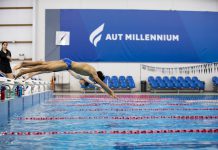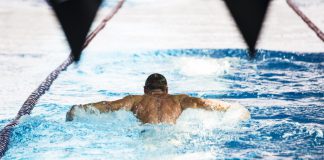From my experience, neck pain is some of the most debilitating pain a person can experience. Limping is hard, and not being able to use an arm can be a hassle, but not being able to turn your neck is a great way to ruin your day. The pain tends to travel from shoulder to head and can actually give you a headache or even pain around your eye. Neck pain can make people feel sick and dizzy and can be very hard to sleep with.
Here are a few tips for dealing with neck pain*:
- HEAT – whatever causes the primary problem in your neck, this is a classic location for some wonderful muscle spasm to join the party! This is usually the first thing I try to treat, as it is very hard to reduce pain and improve range of motion in a neck that is stiffened with tight, angry muscles. Heat is a natural analgesic and muscle relaxant, so chuck a wheat bag on your neck for some relief.
- MOVEMENT – now this is where physio is key! As with everything – too much will make the pain worse. Too little will also aggravate your pain. Some gentle active movements will help you retain or regain movement and can help relax muscle and joint stiffness. Slow, steady and repetitive movements within your pain-free range are key. Turn your head side-to-side like you are shaking your head to say “no”. Tuck your chin in without tilting your head down to give yourself a double chin and return back to your normal posture. Do these exercises 10 times slowly, several times throughout the day.
- MEDICATIONS – oral anti-inflammatories can be really beneficial in reducing pain so that your neck doesn’t stiffen or spasm. If inflammation in the neck is part of your problem, this can also help the recovery process. Physios cannot prescribe medications but these are over the counter products – though you should make sure you talk to a doctor or pharmacist if you are concerned.
- AVOID A BRACE – once upon a time, neck braces were handed out like lollies. It might seem like a relief to offload the neck but actually, you are more likely to have a stiffer neck and a longer recovery.
- SEEK HELP – If your pain gets worse or stays the same for more than a few days, see a physio. If your neck pain is accompanied by pins and needles, tingling or severe pain in your arm, see a physio.
Your physio can treat your neck with a combination of manual therapy (massage, mobilisations and manipulations), exercises, strapping, dry needling, education and advice. We will establish what is causing your pain, be it injury, posture, environment or stress, and help you prevent this from happening again. Come and visit one of the team at Healthzone Physiotherapy to assess and address your neck pain.
*Unless your pain is subsequent to a significant accident such as a car crash or fall – in which case go straight to a doctor or hospital!





































